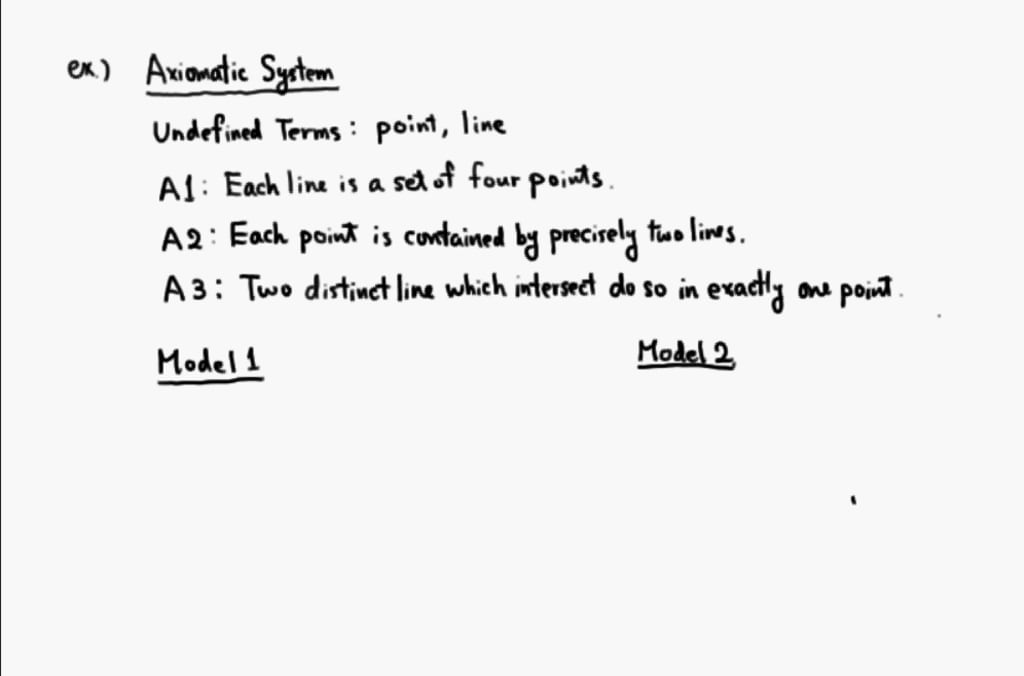The Appropriation of Facts
Objectivity became subjective.

In the recent months there has been a growing, dangerous trend, named many things and, most importantly, disagreed upon to the extent of violence and mortality. As we breached the information age and attained a worldwide achievement in the form of global connectivity and communication, there is an increasing realization that the average individual is not prepared for the sheer amount of information being shoveled at them. In many ways, this is expected. It was a common belief that the average working class individual was either incapable or unwilling to be responsible for worldly knowledge; such a “curse” was befit to the clergy and, later on, the aristocrat. Many times, they became indistinguishable. Depending upon the current fad.
Now, however, every person with free time, and even those without through the invention of the handheld internet connected device and archival storage, has access to an exponentially larger store of easily sorted data that would have made Einstein blush. The average schoolkid learns more about our universe by high school than Newton learned in his entire life, or so the cliché goes. One of the few subjects that is eternally difficult to grasp and synthesize is philosophy, given it is so laden with prerequisites it is more difficult to find something someone hasn’t written down than any original thought. Much of it becomes the systematic study of avoiding plagiarism. In reality, most of information is that way, and the only few novel sciences are quantum mechanics and cosmology; both still have frontiers to discover. QP has consequences for most other sciences, especially networking and cryptography, too. But that begs the question: if we have it all figured out, except for the most extreme of truths of our reality, why do people still distrust such an open, self-critical system?
The unfortunate reality is that we do not have it all figured out. Many things are broken, or misplaced, and the quickness at which it is replaced is merely congruent to the honesty of the discoverer, or his or her death. Freud, while an incredibly intelligent and important figure in psychology, had nearly everything wrong to the point of being a hazard. The foundation he laid was a brittle one, but the foundation proved one could be placed at all, which was valuable and still is.
What is the narrative given to most people regarding science? Science is objective. Science can’t be wrong. Science never has error because of the scientific method. Science is self-correcting. Science doesn’t use feelings or opinion. Science is fact-based. Researchers are honest and only care about progress. All science is falsifiable.
This is how we learn, and we often learn it in contrast to religion or politics, where things are largely subjective or unfalsifiable. Religion, however, is not at all the contrast to science. Religion is a contrast to philosophy. The search for meaning, or purpose. Science is the search for functionality and structure. Religion belies that and gives the structure. Though many would argue religion does the same in pursuit of the will of God, I fear that is not enough.
Yet religion is an easy scapegoat to deny the critiquing view of science. It is very easy to say religion is fantasy; the religious say it to one another, depending on their persuasion. What is hard is convincing an individual that science is affected by bias as much as anything else, and a brief glance at controversy shows this in spades. No matter how strict and laid out any research plan is, it only takes a single spreadsheet error or need for funding to motivate, intentional or not, fraud.
When you put that power, the power to influence individuals on so-called objective fact basis and research, into the hands of any who would seek to make their message heard, you invoke a very dangerous power. It is a power that is difficult to argue against without extreme detail, and requires far more effort than simply making up said argument. Because when evidence is presented, it has to be examined carefully; if you go too fast, you risk missing the important detail that proves it false or biased. When you take more than five minutes in such an argument, the paranoid declare themselves the winners. After all, if you are unable to contest it on the spot, then you are ignorant of the truth.
Thankfully, they are willing to educate you. And if you do not want to, then you are falling into the hands of the enemy. They won't let you be manipulated like the rest of the sheep.
This is the narrative given, sadly fear-based, and now argued, by many in the far right (and near right. And left. It comes in a plethora of forms but is most fallaciously used by the faux intelligentsia). It is a petty, but predictable, repetitive structure that exploits the weak argumentative skills of most people whom are browsing articles or social media casually. It satisfies the necessarily more influenced conservative minds who fancy themselves as profound and in the know, and gives them a smug satisfaction that they know something more than those they disagree with.
I could give many examples, in many conversations, of this exact line of reasoning being pushed on me and simply confusing them in how much I both object to it on the basis and in their attempts to guilt me into accepting even one part, but I do not wish to put anyone's thoughts on display when so many are open and honest. I believe most do not sincerely understand just how influenced they have become, and how little they are thinking for themselves. The consistency of the story across the same demographics makes it clear, especially including their reactions to criticism, that they all have the same root source. How they interact also evolves with the source. Beyond all of it, they think someone who disagrees with them is brainwashed. Indeed, I am claiming the same about them. Rather than accuse them of simply being like that or obviously being kept down by it, I recognize how it strengthens a lost culture.
What needs to be understood is that that culture was not very positive to begin with, and that we expressly agree; but not on who any force of 'good' is. I, and others, want to rid our world of those taking advantage of honest people as much as they do. Rather than understanding that includes everyone who takes advantage of the working class, they cling to a certain set of powerful men and women because of agreement, ignoring all their flaws. When we say no, we cannot ignore those flaws too, they simply point at the other powerful figure and ask how we can support them, but not theirs.
The simple fact of the matter is, we do not support either, and neither should they. When an us vs them mentality is pervasive, it seeps into all forms of logic; including discourse. It was never, however, a binary choice. The third option is to realize we have everything wrong and there is no right choice. That happens often in science, but when one believes in a forgone conclusion so much they will keep fighting for it to the end, they miss the opportunity to discard it and make something even better. It does not need to be socialism, communism, or any other ism. Most importantly, it must not be populism. It is always the populist themselves who becomes too far gone to save.
This biased form of argument, unfortunately, is just not how such discourse works. It is a sad conclusion that, in doing this, they show time and time again they completely misunderstand the purpose of such a studied scientific mentality. It is these who vote and determine our governance, and it is no surprise our governance is weak and suspect. Rather than voting for their interests, leaders just influence the constituents into believing they have an interest they never realized until then. What better way to get support than to fabricate a problem that only you, and your party, can fix?
When presented with evidence you agree with off principle, you are not supposed to immediately turn around and use it to support your own conclusions. You are supposed to try and disprove it; doing so allows you to understand the weaknesses of the position, and if successful in exposing them, reform it to be stronger. This relies on skill and honesty, one of which is far more common than the other. Ironically, though many may not believe it, honesty is truly very widespread, often ignorant honesty in the form of sincerity but a complete failure in realizing the place one sits on the Dunning-Kruger curve. This system is the same with data you disagree with; ironically, in arguing against veganism and other ‘disliked’ life choices, an interlocutor tend to accidentally grab and use pro-vegan sources to further their weak points. There are many ways to argue against all sorts of positions. The greatest way to argue against any position is to understand its internal flaws and not just ones found on the first page of a search engine. To do this, you must study, or experience it, with a genuine and driven interest in the subject. To suggest this is to suggest wasting time for most. Many things also become far less intimidating after even brief research; many stereotypes and presumptions fade away as the real, hard truth, bears through the fantasy.
In realizing that facts are not perfect, and supporting data can necessarily be falsified; we need to take a more critical look in what we believe in, even in the most basic of axiomatic principles like two and two. If you woke up one morning and the entire world decided that two and two make three, no matter how much you argued, what can you do but simply give in? Is it more likely that you have stepped into the twilight zone, or just woke up with a migraine, confused at the clear, obvious conclusion that 2 + 2 = 3?
I write this mostly to get the feeling of dread off my back. I’ve talked to so many honest people whom are lost in the paranoia, and it hurts to see. They aren’t racist; they aren’t evil; they aren’t even idiots. They’ve been manipulated into a fearful, subjective state of obedience disguised in freedom. Instead of presuming the malicious nature of those we’ve lost to fools caught up in their own lies, we have to approach and be the ones to make them understand we are not there to subject them to anything more than a fair deconstruction of their worldview. The only ones who can do that are the ones in focus; our politicians, CEOs, social media, news media, clergy, judiciary, and more; unfortunately, they all profit from it. It may be a long time. Try not to lose sight of humanity as one people, divided by invented bias to satisfy and make sense of our oversaturation of conflicting information.
FC
About the Creator
Felicity Chevalier
USAF Veteran, philanthropist, psilanthropist, possibly lycanthropist. I like to write passages for places I generally believe no one who has ever met me will see, usually including myself.






Comments
There are no comments for this story
Be the first to respond and start the conversation.